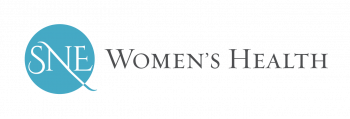Alternative Pregnancy Therapies in Southern New England
Look for Safe and Effective Methods
During a pregnancy, parents are especially interested in optimizing health and minimizing risk to their developing offspring. Many mothers-to-be are worried about side effects of medicines and so avoid taking any medicines at all.
Although many pregnant women believe “natural” products can be safely used to relieve nausea, backache and other annoying symptoms, it is wise to check with a practitioner first. He or she will not recommend a product or therapy until it is shown to be safe and effective. This holds doubly true in pregnancy, since there are two patients, mother and baby involved.
Mothers-to-be are understandably reluctant to sign up for experiments involving their unborn babies. Also, manufacturers of vitamin and herbal supplements are not required by law to sponsor expensive testing of their products. Even when properly done studies exist, the results can be confusing since so many things can affect the development of a baby.
In fact, some therapies have been shown to be even more effective than traditional remedies. For nausea in early pregnancy, acupuncture, acupressure, ginger root (250 mg capsules 4 times a day), and vitamin B-6 (pyridoxine, 25 mg two or three times a day) work well. For backache, chiropractic manipulation holds the best track record. For turning a breech baby, exercise, hypnosis and traditional Chinese treatment (burning an incense-like substance on the fifth toe) have proven benefit. A certain homeopathic treatment seems to work for labor induction as does evening primrose oil for cervical ripening. However, conventional methods are more reliable for these. For pain relief in labor, epidurals are most effective, but injections of sterile water near the sacrum work surprisingly well, as do immersion in a warm bath and high-tech nerve stimulator called TENS. Relaxation techniques, patterned breathing, emotional support and self-hypnosis are already widely used alternative therapies in labor.
Many herbs, vitamins and supplements seem to hold no risk in pregnancy, but very few have been shown to actually supply any measurable benefit. The most commonly used of these is red raspberry leaf tea.
The following substances have the potential to harm a developing baby when used in a concentrated formulation (not as a spice in cooking). Some are thought to cause birth defects, and some to encourage early labor.
Avoid these oral supplements: Arbor vitae, Beth root, Black cohosh, Blue cohosh, Cascara, Chaste tree berry, Chinese angelica (Dong Quai), Cinchona, Cotton root bark, Feverfew, Ginseng, Golden seal, Juniper, Kava kava, Licorice, Meadow saffron, Pennyroyal, Poke root, Rue, Sage, Saint John’s wort, Senna, Tansy, White peony, Wormwood, Yarrow, Yellow dock.
Large doses of vitamin A can cause birth defects.
Avoid these aromatherapy essential oils:
Calamus, mugwort, pennyroyal, sage, wintergreen, basil, hyssop, myrrh, marjoram and thyme
NIH Center for Complementary and Alternative Medicine: www.nccam.nih.gov
MDConsult: www.mdconsult.com
Alternative Medicine News Online: www.altmedicine.com
Take a Look at Our Providers
We are committed to our patient’s well-being and will conduct business with integrity, respect and compassion. Let us meet your health care needs.
